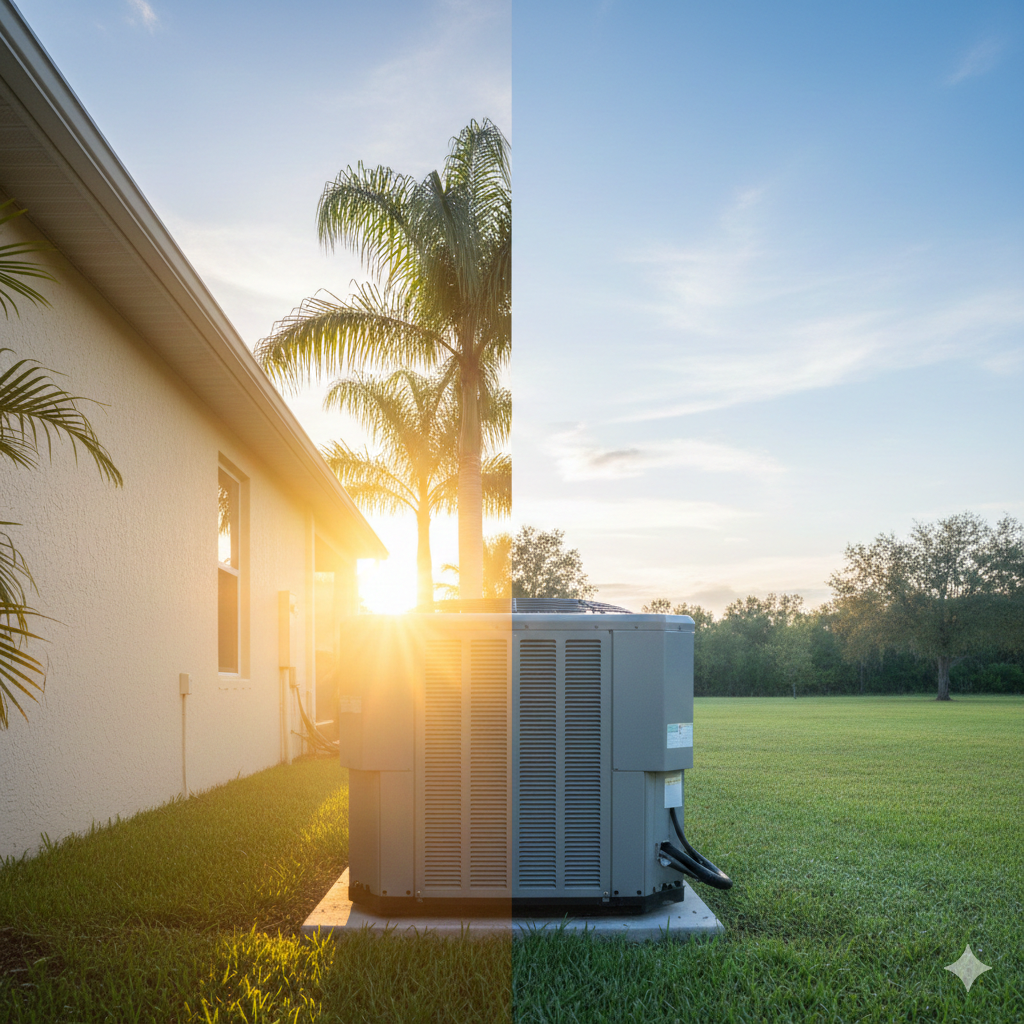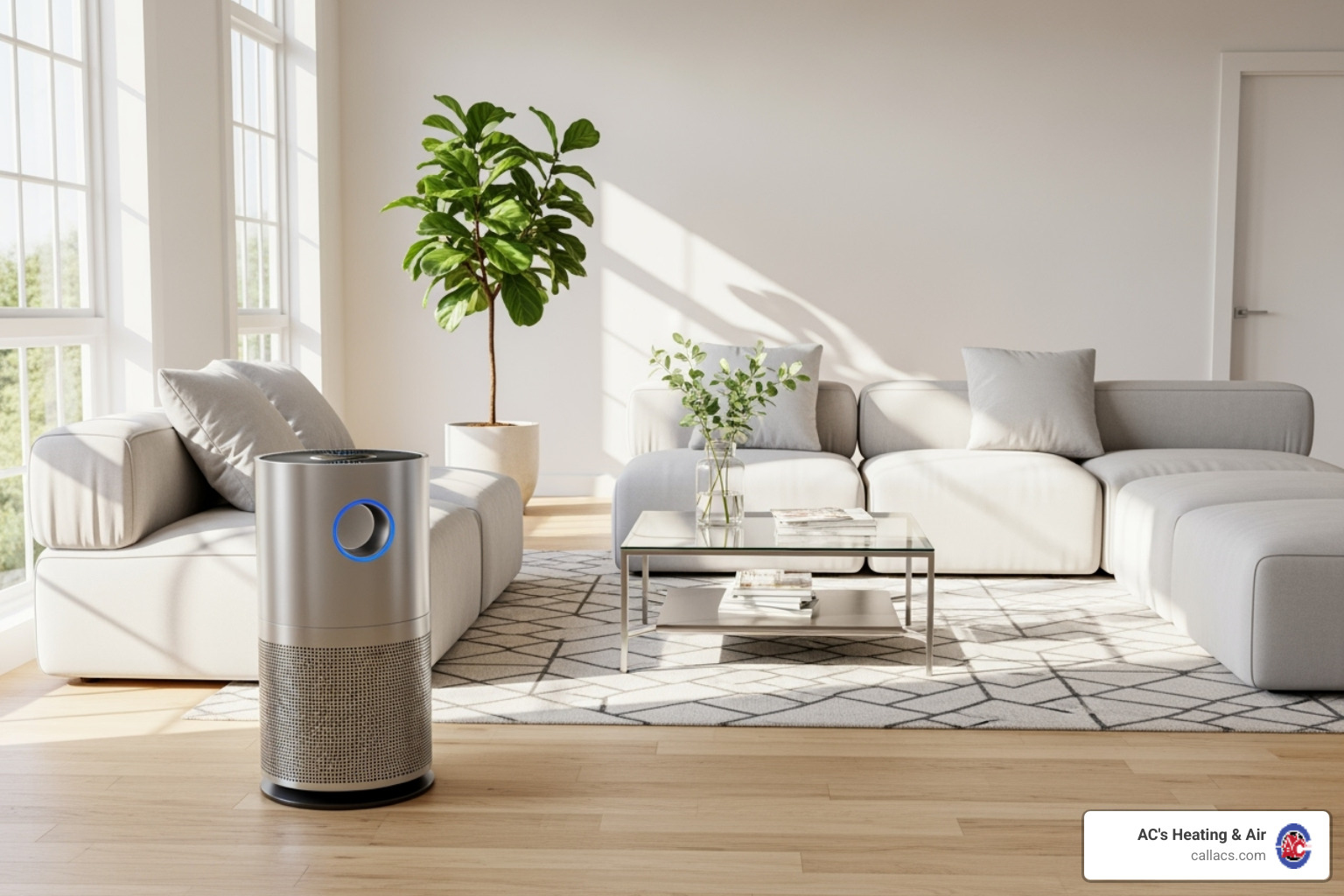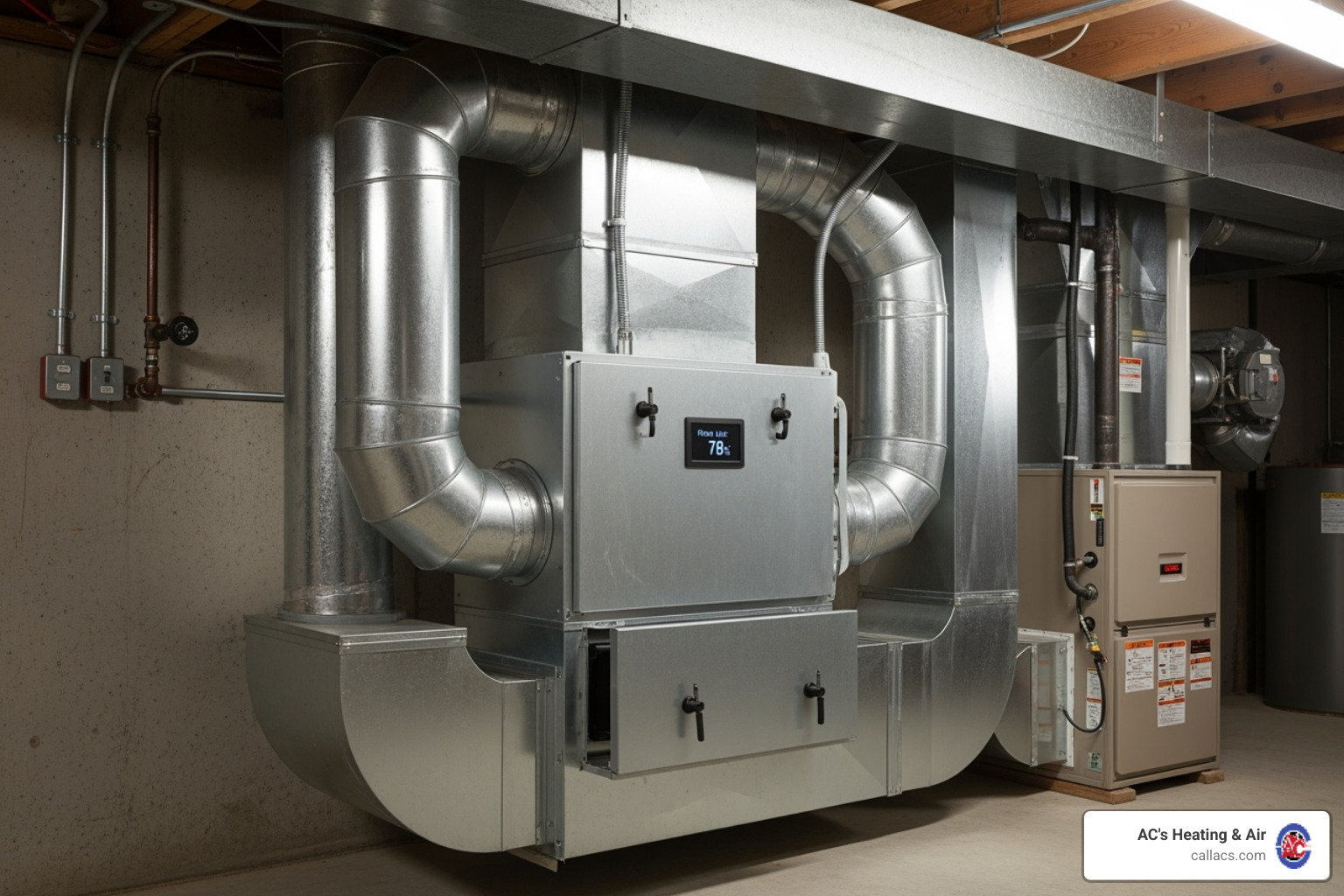When Storms Strike: A Guide to HVAC Damage Assessment

How Storms Can Damage Your HVAC System
Understanding damage to HVAC unit from storm is crucial for homeowners and business owners in Central Florida who want to maintain a comfortable indoor environment. Storms can severely impact HVAC systems, causing physical damage or reducing their efficiency. Here are the key impacts:
- Physical damage: Winds can displace outdoor units and damage internal components.
- Water infiltration: Flooding or heavy rain can affect electrical components.
- Debris impact: Flying debris can damage condenser fins or housing.
- Power issues: Lightning can cause power surges, affecting start capacitors or motors.
- Corrosion: Saltwater from coastal storms can corrode metal parts quickly.
Addressing these issues promptly can save you from costly repairs and ensure continuous comfort in your home or business.
I'm Allen Chenault, founder of AC's Heating & Air, with decades of expertise in assessing damage to HVAC unit from storm for clients across Florida. My mission is to provide reliable solutions for storm-damaged systems, ensuring your environment stays comfortable and efficient.

Recognizing Damage to HVAC Unit from Storms
After a storm, it's important to check for any damage to HVAC unit from storm. Here are some signs to watch for:
Physical Damage
Storms can cause obvious physical damage to your HVAC system. Look for:
- Bent or damaged condenser coils: These can prevent proper airflow.
- Displaced units: Strong winds might shift the outdoor unit from its original position.
- Debris and mud: These can clog cooling fins and disrupt heat transfer.
Unusual Noises
If you hear strange sounds like screeching, rattling, or buzzing, debris might have entered the unit. This can lead to:
- Overheating
- Decreased energy efficiency
- Potential system failure
Power Surge and Burning Odor
Lightning and power surges during storms can damage electrical components. Signs include:
- Unit won't power on: This might be due to a fried capacitor.
- Burning smell: Similar to burning plastic, indicating damaged wires or fuses.

Water Pooling
Check around the outdoor unit for standing water. Prolonged exposure to water can:
- Damage electrical parts
- Compromise moving components
Reduced Cooling Efficiency
If your AC isn't cooling as well as before, it could be due to:
- Clogged condenser coils
- Refrigerant line leaks
These issues can increase your energy bills and harm the environment.
Inspect your HVAC system after a storm to catch these issues early. If you notice any of these signs, contact a professional for an assessment.
Next, we'll explore preventive measures to protect your HVAC system from future storms.
Common Signs of Storm Damage
When storms roll through, they can leave your HVAC system in a less-than-ideal state. Here's how to spot the damage to HVAC unit from storm events:
Burning Electrical Odor
A burning smell, especially like melted plastic, is a red flag. This can happen if a storm causes a power surge, damaging electrical components like wires and fuses. If you notice this odor, turn off your system immediately and call a professional.

Strange Noises
Strange noises are never a good sign. After a storm, you might hear:
- Buzzing: Debris in the outdoor unit can cause fans to hit blockages.
- Clanking: Indicates misaligned or broken parts.
- Screaming: Could mean a refrigerant leak, which is a health hazard.
These sounds suggest internal issues that need immediate attention.
Reduced Cooling Efficiency
If your AC isn't cooling like it used to, it might be due to:
- Refrigerant leaks: Often caused by storm damage to lines.
- Blocked airflow: Debris can clog the system, trapping hot air and reducing efficiency.
This not only affects comfort but also spikes energy bills.
AC Fails to Turn On
Sometimes, your AC might not turn back on after a storm. This could be due to:
- Tripped breakers: Power surges can trip the circuit breaker.
- Fried components: The start capacitor or motor might be damaged.
If resetting the breaker doesn't work, call a technician.
Water Pooling
Look for water pooling around the outdoor unit. Heavy rain or flooding can:
- Soak electrical components: Leading to shorts.
- Corrode parts: Water can rust and degrade materials over time.
Address any drainage issues to prevent future damage.
Physical Damage
Finally, inspect for visible damage:
- Bent fins or coils: These disrupt airflow.
- Displaced units: Strong winds can shift or topple the unit.
- Loose or missing parts: Covers or panels may be blown away.
After spotting these signs, it's crucial to get a professional assessment to avoid further complications.
Next, we'll explore preventive measures to protect your HVAC system from future storms.
Preventive Measures for HVAC Systems
Protecting your HVAC system from storm damage is crucial, especially in storm-prone areas like Central Florida. Here are some simple steps to help safeguard your system:
Surge Protector
Power surges can wreak havoc on your HVAC unit's electrical components. Installing a surge protector can help absorb excess electricity during a storm, preventing damage to sensitive parts like the motor and start capacitor. This small investment can save you from costly repairs down the road.
Tie-Down Straps
High winds can shift or even topple your outdoor unit. To prevent this, use tie-down straps to secure the unit firmly to its base. This not only keeps the unit in place but also minimizes the risk of electrical and mechanical damage.
Debris Clearance
Keeping the area around your HVAC unit clear of debris is vital. Trim nearby trees and shrubs to prevent branches and leaves from clogging the system. Regularly check for and remove any debris that might have accumulated, especially after a storm. This ensures proper airflow and reduces the risk of damage.
Maintenance Plans
Routine maintenance is your best defense against storm-related issues. Consider enrolling in a maintenance plan with a trusted HVAC service provider. These plans typically include:
- Bi-annual inspections: Technicians can spot potential issues before they become serious problems.
- Filter changes: Clean filters improve efficiency and air quality.
- System tune-ups: Ensures your system is running optimally and can handle the extra strain during a storm.
By implementing these preventive measures, you can significantly reduce the risk of damage to HVAC unit from storm events and ensure your system remains in top condition.
Next, we'll tackle some frequently asked questions about HVAC storm damage to clear up any remaining concerns.
Frequently Asked Questions about HVAC Storm Damage
Can a storm mess up your AC unit?
Absolutely. Storms can cause significant damage to your AC unit. High winds might knock units off their base, while flying debris can dent or pierce the metal housing. This can lead to bent or broken fan blades and damaged coils. Water pooling around the unit can also lead to electrical shorts or rust, affecting performance.
Moreover, power surges during storms can damage electrical components, causing the system to fail when you need it most. Protecting your unit with surge protectors and securing it with tie-down straps are good preventive measures.
Is HVAC covered by homeowners insurance?
Homeowners insurance typically covers damage from specific perils, such as wind or hail, which are common in storms. However, it usually doesn't cover general wear and tear or damage due to neglect.
For instance, if your HVAC system is damaged because of a storm-related event like a fallen tree, your policy will likely cover it. But if the damage is due to poor maintenance or old age, it might not be covered. It's crucial to check your policy details and discuss them with your insurer to understand what is and isn't covered.
Can heavy rain damage an AC unit?
Heavy rain by itself is usually not a problem for AC units. They're designed to withstand rain. However, issues arise when rain is accompanied by debris or if the drainage around the unit is poor.
If water can't drain away properly, it might pool around the unit, leading to rust or electrical issues. Debris carried by rain can clog the system, affecting airflow and efficiency. Regular maintenance and keeping the area clear of debris can help mitigate these risks.
Next, let's explore how AC's Heating & Air can assist with inspections and repairs to ensure your HVAC system is in top shape, even after a storm.
Conclusion
When storms strike, damage to HVAC units can be a significant concern. That's where we at AC's Heating & Air come in. We understand the challenges that Central Florida's weather can bring, and we are here to help you keep your cooling systems running smoothly.
Our team specializes in thorough inspections and repair services. We identify any storm-related issues, whether it's physical damage, electrical problems, or water pooling. Our experts work diligently to restore your system's efficiency and reliability.
We also offer custom maintenance plans to help you prevent future issues. With regular check-ups, we ensure your unit is prepared to withstand whatever Mother Nature throws at it. Our services cover a wide range of locations, including Orlando, Apopka, Winter Park, and Winter Garden.
Don't wait until a small issue becomes a big problem. Trust our experienced technicians to keep your home comfortable year-round. Contact AC's Heating & Air today to schedule an inspection or learn more about our repair services. We're here to help, rain or shine.



